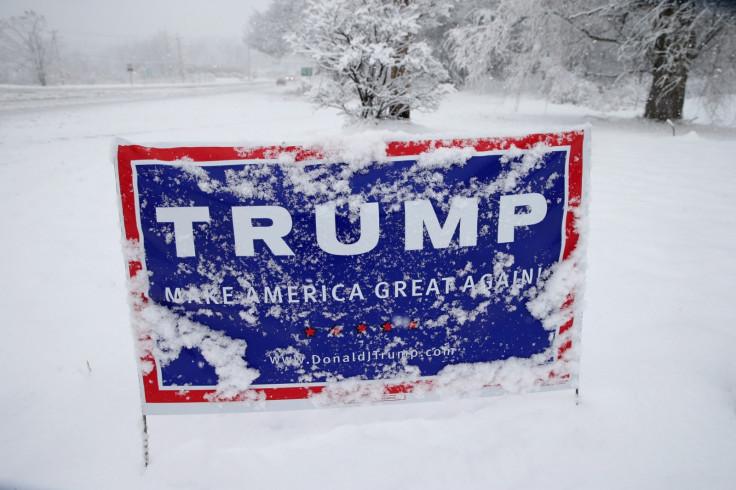Hey Donald Trump, cold weather is actually a sign of global warming
KEY POINTS
- The US President called for some "good old global warming" because of a cold snap.
- Scientists were quick to point out that cold weather events are a symptom of climate change.
As a cold snap grips the US, President Donald Trump has raised eyebrows by calling for some "good old global warming" to make the weather more pleasant.
Regardless of whether Trump truly believes that global warming is a way to turn up the world's imaginary thermostat without consequence, he's far from the first person to suggest that perhaps the world isn't really heating up if the weather seems to be getting colder. After all, this will likely be the coldest New Year's eve on average in the US for half a century.
But that's not really how the weather works; there is an important difference between "weather" and "climate".
While "weather" describes the conditions in the atmosphere in a short period of time, climate is related to its long-term behaviour, according to NASA.
It's easy to pick and choose data that suggests the weather is colder at any given time, while ignoring overarching trends relating to the climate. At the same time, changes to the climate can affect the weather.
Climate expert Marshall Shepherd, writing for Forbes, points to the phenomena of polar amplification which sees a larger change in temperature at the Earth's poles compared to the global average when there is a shift in net radiation.
The Earth's net radiation is the total energy contained in the atmosphere that can influence climate, and this can be altered by things such as the level of greenhouse gases.
As humans are amplifying the greenhouse effect by using fossil fuels, the Arctic is witnessing rises in temperature more extreme than other parts of the world. When more ice there melts, more heat shifts from the ocean to the atmosphere, weakening the polar vortex winds which prevent cold Arctic air from moving toward southern parts of the globe – including North America.
It is such shifts in the flows of the Earth's atmosphere that cause more extreme weather events, such as prolonged droughts, frequent powerful hurricanes, and extreme cold and hot weather.
Some scientists believe that the drought in California is an example of this, and the continual wild fires are a consequence. Likewise, rising ocean water temperatures and warmer ocean air have been linked to the frequent and powerful hurricanes that battered the Caribbean and eastern United States.
Overall, the US has experienced more record high temperatures this year than record lows.
"We can still expect periods of very cold temperatures, snowstorms, and even days of record low temperatures. However, climate change continues to shift the odds towards more periods of warmer weather and less so for colder weather," Zack Labe, a doctoral candidate studying Earth systems science at the University of California, Irvine, told USA Today.
According to data from the National Oceanic and Atmospheric Administration, since records began in 1880, the hottest years ever have been noted after 1998. And the record for global temperature has been broken year on year since 2014, while 2017 looks set to continue this worrying trend.























